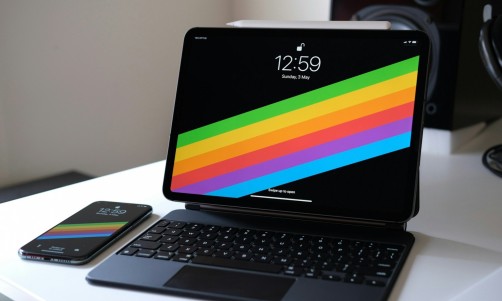Most business owners start their entrepreneurial journey by sharing a personal vehicle with the business. However, as the business grows, it may be necessary to have a separate car exclusively dedicated to business use.
A business car ensures that more work is done and frees the business owner to tend to other matters, as his employees can handle the car-related business errands.
Aside from saving the owner tons of time, a business car bearing your company logo is an invaluable opportunity for you to advertise your enterprise. That said, there are critical elements to consider when hiring or purchasing a company car.
These factors will help direct you towards a befitting vehicle at the best possible price. Here are five essential things to bear in mind when purchasing or hiring a business car.
1. Price and utility
The price of the car must be as favorable as possible without compromising on the car's prospective value to the business.
In other words, the car you go for must be able to fulfill your business needs to the greatest extent possible.
It is pertinent to have a clear idea of your business transportation needs. These will, in turn, inform the model, size, and price of the car that you select.
If it is a car to be used for shuttling employees, for example, consider the capacity of passengers. That will determine whether to go for a van or a bus.
Similarly, if the vehicle is entirely for hauling cargo, the quantity and weight of the load will help you determine how powerful the car needs to be.
With these specifications laid out, you can then determine which models are available in the market and at what price.
2. Fuel economy
In every class of motor vehicles, different models consume fuel at different rates. When shopping for a business car, going for the most energy-efficient vehicle ensures a low impact on your company's profits.
Figure 1Toyota Camry is one of the most fuel-efficient cars in the market today.
Source: https://wallpapercave.com/w/wp4318711
A fuel-efficient car can cover the most distance on a given amount of fuel.
While the amount of money you save in terms of consumption may appear negligible initially, it adds up in due course.
Smaller cars consume less fuel than large ones. Also, be on the lookout for the size and type of the car's engine, as that is also a good indicator of the vehicle's fuel consumption.
It is always advisable to go for vehicles with extra gears, as these will keep the engine running most efficiently. Continuously Variable Transmission (CVT) engines are best in this regard.
Also, consider the type of drivetrain that a car has. Front-Wheel Drive (FWD) vehicles are more fuel-efficient compared to Four Wheel Drives (4WD) or All-Wheel Drives (AWD).
3. Maintenance costs
Aside from the purchase price and fuel costs, a car comes with other running expenses that your business will incur. These include insurance charges, service and maintenance fees, and depreciation.
It is thus best to consider a car whose maintenance is low on each of these items.
The type of insurance you go for should cater to your needs without it being too costly.
Here, you may need to consider the risks that you will most likely be exposed to and take out an indemnity cover that mitigates against those risks.
As for maintenance and service, this includes the periodic checking of the car's wear and tear and replacing any parts that need replacing.
Consequently, the car you opt for should have affordable and available spare parts, as this saves your business the hassle of dealing with a stalled vehicle.
As for depreciation, all vehicles are prone to depreciation (loss of value). However, some have a higher rate of depreciation than others.
You should bear in mind the likely resale price of the car to have a rough estimate of its rate of depreciation.
Considering the rate of depreciation is especially important when paying the car through a loan. That is because it helps you ensure that, in the end, what you pay for is the actual worth of the vehicle and nothing more.
4. New vs. used car
Depending on the type of business and how far along the journey you are, it may be necessary to consider whether you wish to go for a new car or a used one.
Figure 2New Honda CR-V
Source; https://wallpapercave.com/w/wp5616670
With a new car, you enjoy the advantage of getting a vehicle that is still covered by the manufacturer's warranty.
Also, new cars afford you the opportunity of enjoying the vehicle during its best and most problem-free years.
New cars are cheaper to maintain as well.
On the other hand, used vehicles have the advantage of having lower and more negotiable purchase prices.
Should you choose to go for a used vehicle, consider getting one with a good service history. An expert mechanic can also help you determine the mechanical integrity of your prospective car.
5. Financing
Lastly, evaluate the type of financing that you propose to use.
Lump-sum cash purchases give you the advantage of securing a car at a discounted rate.
In the same spirit, ask yourself whether an outright purchase will be better than a car rental. For short-term use, renting a business car is always more economical than buying.
Where you wish to purchase the car and intend to do so through a loan, always opt for short-term loans. The ideal loan term for a business car is less than 3yrs.
That allows you to avoid 'upside down' car repayments (where you end up paying more for the car than its actual worth).















